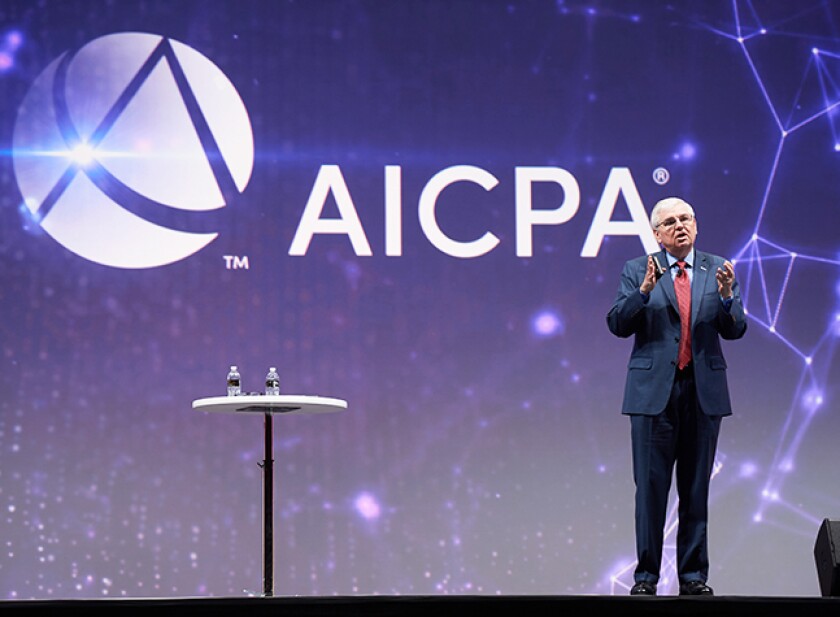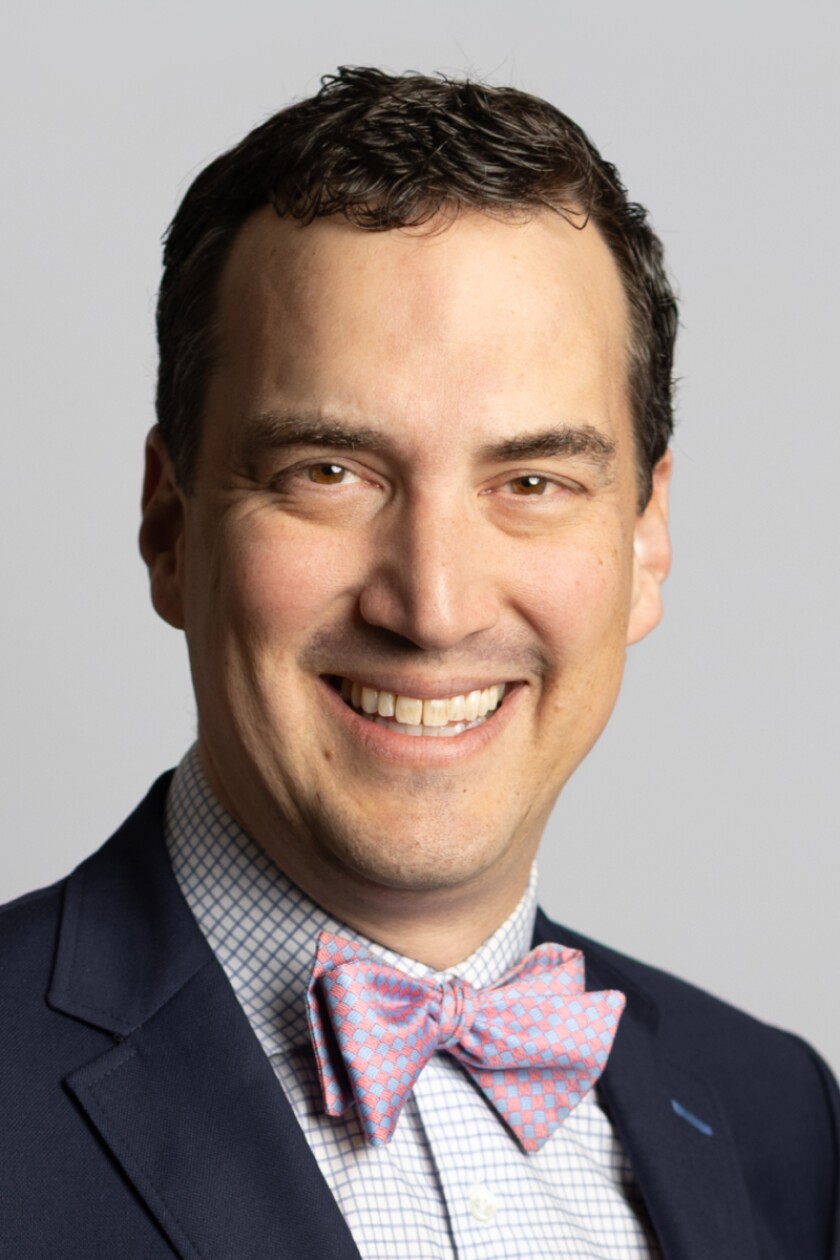Accountants are facing unique challenges during the coronavirus pandemic — but the profession is rising to the meet them at all levels, according to leaders from the American Institute of CPAs.
“This is a defining time for the AICPA and our firms,” said Erik Asgeirsson, president and CEO of CPA.com, the technology arm of the institute, on a conference call with leaders of the profession last week. “Leadership is so critical at this time.”
Cagatay Zor is a fintech strategist and the head of the fintech and blockchain business line at Trumore.
Ciao-Wei Chen is an associate professor of accountancy at the Gies College of Business at the University of Illinois Urbana-Champaign.
Max Perkins is head of insurance solutions and COO for Spektrum Labs, an AI-first cyber resilience company that provides agents and tools to reduce the time, cost, and complexity of maintaining provable and effective security and insurability. Spektrum unifies the disconnected domains of cybersecurity, backup, and insurance into one continuous, automated system. By fusing these traditionally disconnected areas, Spektrum enables businesses to prove and maintain continuous resilience—from preventing cyber threats, to instant recovery, to securing financial coverage—all in one place. Spektrum unlocks resilience, automating and verifying the connection between security and insurance, so businesses can recover faster and protect their future.
Prior to joining Spektrum, Max's professional career had been focused on insurance and risk management with particular expertise in intangible boardroom risks such as cyber, privacy, and intellectual property, and the overall impact of technology on business. Max was head of Strategy & Innovation for AXIS Capital's Cyber & Technology underwriting division, where his responsibilities included risk capital management and leadership in launching the world's first securitized 144a Cyber Cat Bond. Prior to joining AXIS in April 2020, he was an insurance broker at Lockton Companies and an underwriter at AIG, CHUBB and Beazley – operating both in the US and London markets.
As the crisis deepened in late March and early April, “we received hundreds if not thousands of emails from CPAs,” Asgeirsson said. “They were worrying about employee safety, and then worrying about the business.”
Even as the institute became a leading voice in shaping the direction of the federal stimulus, it worked to help firms make sense of the new environment.
“We are very actively engaged in what we need to do to provide guidance and leadership, and thinking about what a historic time this is for firms in their role as the most trusted strategic advisors,” Asgeirsson said, before adding a warning: “We’re thinking about this in sprints, but we also need to think about it as a marathon.”
For instance, while many firms were able to make the move to remote work relatively quickly, they are also still struggling with the same questions around staffing in uncertain times that have plagued the rest of the economy.
“I have talked to a lot of firm CEOs,” said institute president and CEO Barry Melancon (pictured) on the same call, “and firms basically look at this as a valley that they are working through now. They want to hold onto their people because they know their clients are going to need them. … The profession is pretty well positioned to be successful, if they can hold onto their staff, and I think firm leaders see that.”

He also noted that the impact on firms has varied, depending on their geographic location and size. For instance, “all of the large firms feel good about how quickly they were able to go remote,” he said. “But further down the size spectrum, there’s more uncertainty, particularly around small businesses and how do you see them surviving. Cash flow is a big issue — are clients paying? CPA firms are not generally overcapitalized.”
Overall, he expects to see firm revenue to shrink as much or more than it did during the recession of 2008-2009, and for firms to take other steps to make difficult decisions to make it through the crisis.
“We know there have been certain percentages of people laid off in firms, but not as many as if the Paycheck Protection Program wasn’t there,” he said. “Generally speaking, people are positive about their clients and their relationship with them. And in terms of tax, they’re going to have greater productivity in May, so that’s a positive tradeoff.”
Both the PPP and the postponement of the tax filing deadline to July, as it happens, were major components of the AICPA’s response to the pandemic.
A focus on small business
With the pandemic kicking into high gear in mid-March, just a month before the original April 15 filing deadline, the institute strongly urged Congress and the Internal Revenue Service to push the deadline back to July 15 — not least to create space to focus on other priorities.
“We worked really hard to get the tax extension,” Melancon explained. “We actually had some pushback from our members who didn’t want to extend tax season, but that just wouldn’t work. We said, ‘Where can we make the most impact?’ and that was really the small-business component. We had groups inside the institute working on that, and we said, ‘Congress will pay attention to the big industries, but this is really going to be about small businesses, and they’re critical to the economy.’ So we focused on the small-business component, and said there needs to be a focus on small business as an industry, much the way you might think about, say, the airline industry. There are about 6 million small businesses with employees, most with under a hundred employees.”
The institute and a number of partners strongly advocated for a payroll-based approach to supporting small businesses, and the resulting PPP has kept the accounting profession busy since the minute it was launched.
“Our firms are overwhelmed — clients are calling all the time,” said Mark Koziel, executive vice president for firm services at the American Institute of CPAs “They’re now glad about the delay in tax filing — they’re saying, ‘There was no way we could do all of this and handle tax season at the same time.’”
While the PPP has proven popular, with its initial tranche of funding running out very quickly, there have been some questions about its effectiveness.
“This wasn’t intended to be a perfect program,” Melancon said. “It was intended to be a fast program. And when you look at it, it’s been incredibly effective — though that’s not to say there haven’t been issues.”
“With a program of this size, there are always unintended consequences,” Asgeirsson said. “But in $300 billion of loans, you’re talking about a couple of billion. This is a perfect trusted advisor discussion to have with clients, to be able to help them explain the ‘why’ behind their getting this loan.”
The institute is recommending that accountants and their small-business clients carefully document their “self-assessment of need.”
“What I’ve been advising firms is to think about those issues and document them, because when the question comes, it’s not going to be with a lot of lead time,” Melancon said. “Go back to the intent, and document what you were thinking of.” He also advises firms not to sign PPP applications on clients’ behalf — the head of the business should do that.
Koziel agreed: “This issue hasn’t been new for us to recommend that firms that help clients around the PPP and the federal programs should be documenting their work. It is critical for the firms to make sure it’s well-documented, just like any engagement.”
It’s just as important for firms that have applied for the PPP to document their own self-assessment, he added. “Firms originally only included employees in their applications, and did not include partners, and that will be a positive data point for them down the line — ‘We were focused solely on keeping our staff employed,’” he said.
At the same time, he recommended that firms look beyond the PPP, rather than just responding to client fears and reactions: “They came in like their hair was on fire and demanded to apply for the PPP — but did they step back and consider all the other stimulus that’s available?”
Going forward
As the country makes its way through, and eventually out of, the coronavirus pandemic, the institute leaders stressed the opportunities and responsibilities that accountants bear.
“Just as the medical profession plays a critical role in health, we play a critical role in the health of the economy,” explained Melancon. “The profession is incredibly well positioned to be part of the solution going forward, particularly when you think about small businesses. If you look at history, when it comes to climbing out of negative economic times, our profession has played a critical role.”
He pointed to a number of potential growth areas for accounting firms to pay attention to now and when they come out of the crisis, including private equity and others looking to deploy capital in a recovering economy; the medical profession; the government sector; commercial business clients (particularly in terms of revising their business models and strategic plans); and the many clients who will need help with refinancing in the aftermath of the pandemic.
“There are a lot of opportunities in terms of helping firms with their business models going forward,” agreed Koziel. “A lot of firms are saying their business model won’t be the same after this, and their office models will change, too.”




